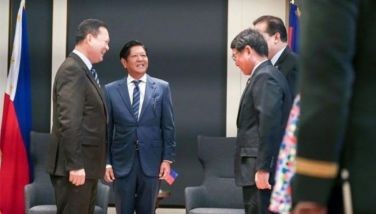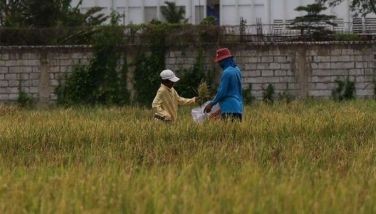Congress approval of new mining fiscal regime sought
MANILA, Philippines — The Department of Finance (DOF) is hoping that lawmakers will pass fresh tax rates under a proposed new mining fiscal regime, as it banks on the industry to contribute to economic recovery.
During the Philippine Extractive Industries Transparency Initiative (PH-EITI) national conference yesterday, Finance Secretary Benjamin Diokno said the platform has been used to ensure equitable government revenue share from resource utilization.
Diokno expressed optimism on the passage of the mining fiscal regime to achieve simplification, fair share, value-adding and good governance.
“I expect that to be at least approved by the lower house before the end of the year,” Diokno told The STAR.
“The Senate right now is preoccupied with the budget so there might not be much time for that. Maybe in the first quarter (they can both approve it),” he said.
Senate Majority Floor Leader Joel Villanueva, for his part, said he is working closely with the DOF for the passage of the bill, which is among the priority measures of the administration.
“I am supporting it and I am looking forward to championing this particular measure. This has been my priority measure in the past Congress so I think it’s about time and we have seen the need and importance of this,” Villanueva said.
The new regime is expected to provide close to P40 billion in additional revenues to the government.
The DOF also wants to impose a royalty rate of five percent for all large-scale mining operations and provide incremental revenues of at least P5 billion yearly.
This will effectively change the current set-up where only those located inside a mineral reservation are subject to this royalty payment.
The DOF is also pushing for a rationalized and single fiscal regime applicable to all large-scale metallic mines, regardless of location.
This addresses the complexity of the current fiscal regime which depends on whether the mine is operating in a mineral reservation and whether it is operated under a Mineral Production Sharing Agreement (MPSA) or a Financial or Technical Assistance Agreement (FTAA).
In terms of value-adding, the DOF is proposing a 10 percent export tax on the gross value of mineral ore to encourage downstream and proper valuation of minerals. Currently, there is no duty on unprocessed export of minerals.
Current mining tax policies in the country include a 25 percent corporate tax, four percent excise tax of gross value, and five percent mineral royalty inside mineral reservation areas, as well as 50:50 mode of sharing between government and mining proponents under an FTAA.
Meanwhile, the PH-EITI launched the key findings of the 2020 PH-EITI report which highlighted the potential for the extractive industries to be a key growth sector in the country given its vast mineral resource deposits.
Based on the report, the metallic mining sector saw its revenues increase by 24 percent to P13.76 billion in 2020 from P11.09 billion in 2019.
Corporate income tax was the revenue stream that recorded the highest collection, followed by output value added tax and excise tax on minerals.
Overall, the extractive industry reconciled P44.7 billion in revenues from mining, oil, and gas, down 27 percent from year ago levels due to lower government collections amid pandemic-induced decline in demand.
Since the PH-EITI implementation, total government revenues from the sector reached P405.4 billion from 2012 to 2020.
- Latest
- Trending



























